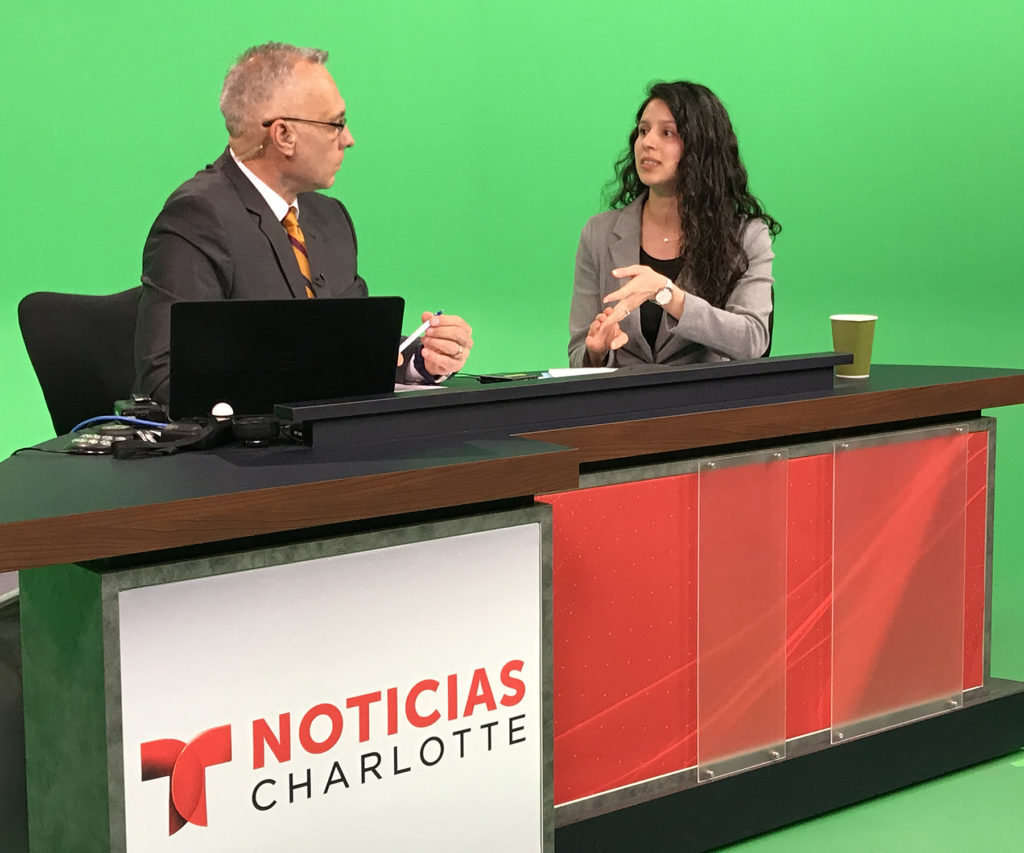
As a member of the Protecting Immigrant Families Campaign, a national coalition of organizations fighting to protect immigrant family stability, Charlotte Center for Legal Advocacy has been working to educate the community on the local impact of the Trump administration’s new Public Charge rule.
The rule, which went into effect Feb. 24, expands the types of benefits considered in the “public charge” immigration test administered to immigrants entering the country or seeking permanent residency to determine if they will become primarily dependent on the government for financial support.
This broader definition makes it harder for low-income immigrants to legally immigrate to the U.S. through family-based petitions or adjust their immigration status to become legal permanent residents (become green card holders).
Misinformation around the rule is also creating unnecessary fear for families who are not impacted. Immigrants without legal status do not qualify for most public benefits. Many immigrants with status who do qualify and all U.S. citizen family members are not subject to the rule.
Families are also scared to use resources that are not included in the rule such as Affordable Care Act Marketplace health coverage, local health programs, and school lunches programs.
That’s why families need to seek legal advice and understand their options before making any major decisions.
Medical-Legal Partnership coordinator Elizabeth Setaro has been leading the Advocacy Center’s efforts, appearing in local Spanish media and conducting presentations for families, healthcare providers and community groups that serve the immigrant community.
“Our goal is to help families fight fear with facts,” she said. “When families have the information they need, they can make informed decisions about what is best for their individual situations.”
Charlotte Center for Legal Advocacy’s health insurance navigators also participated in a report released last week by the National Immigration Law Center (NILC) documenting the harm caused by the public charge rule before it was implemented. The report shows the chilling effect the rule has had on families using public benefits and seeking health care they are entitled to receive.
NILC interviewed health insurance navigators Andrea Mora and Johanna Parra, who provided firsthand accounts of the fear they have observed from families the Advocacy Center serves. Since the rule was proposed, Mora and Parra have had families who were not subject to the rule insist on withdrawing from benefits out of fear that continuing to use them would jeopardize their immigration status.
The sad part of all this is that, mainly, all these consumers are already green card–holders. They are already residents, so some of them will apply for citizenship in a few years, some of them … have been given the green card …. [W]e have to explain, “You are already a resident, you won’t have any problem because this is a proposed rule that will affect from maybe when you are applying for residency, so that is not your situation.”
Quote from a Charlotte Center for Legal Advocacy navigator featured in “Documenting through Service Provider Accounts Harm Caused by the Department of Homeland Security’s Public Charge Rule” published by the National Immigration Law Center.
This continues to happen even though the rule does not apply to most immigrants.
Now with concerns of COVID-19 spread, families may fear seeking testing or care if they worry about negative immigration impacts.
Charlotte Center for Legal Advocacy continues to monitor the effects of this rule and is available to help families understand their options.
Learn more about Public Charge and its impact on our community:
Public Charge: What Families Need to Know
Ocho Cosas Que Debes Saber Sobre Carga Pública